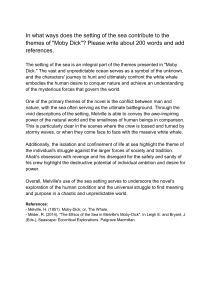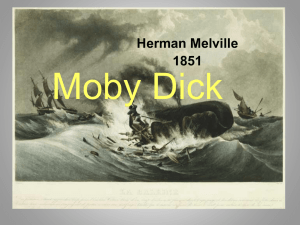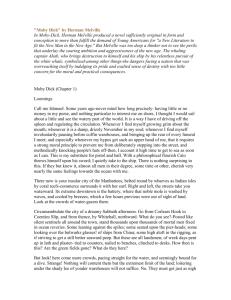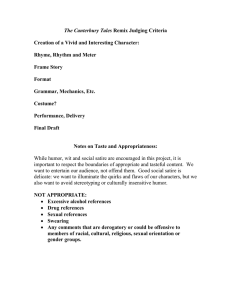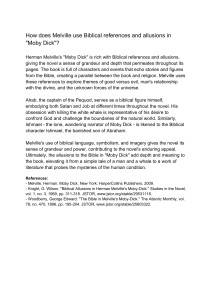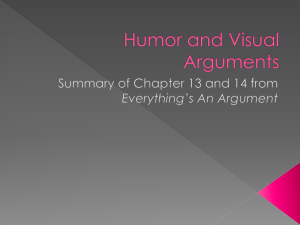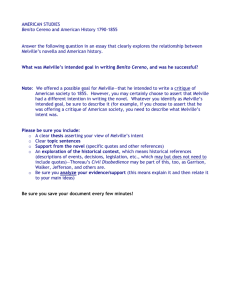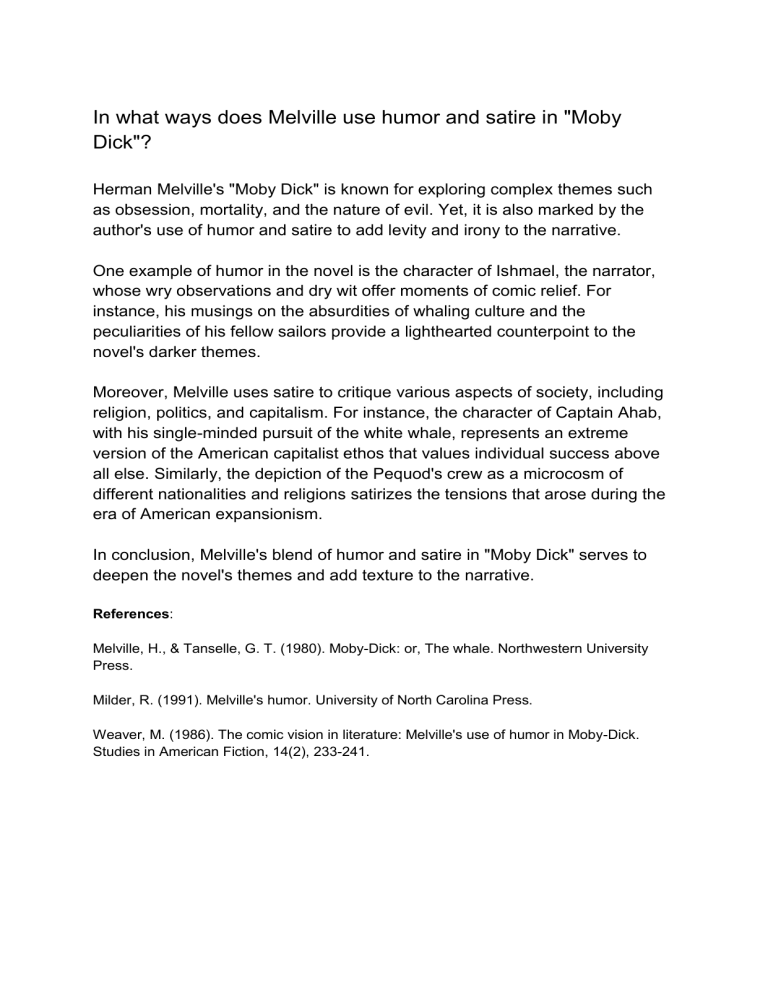
In what ways does Melville use humor and satire in "Moby Dick"? Herman Melville's "Moby Dick" is known for exploring complex themes such as obsession, mortality, and the nature of evil. Yet, it is also marked by the author's use of humor and satire to add levity and irony to the narrative. One example of humor in the novel is the character of Ishmael, the narrator, whose wry observations and dry wit offer moments of comic relief. For instance, his musings on the absurdities of whaling culture and the peculiarities of his fellow sailors provide a lighthearted counterpoint to the novel's darker themes. Moreover, Melville uses satire to critique various aspects of society, including religion, politics, and capitalism. For instance, the character of Captain Ahab, with his single-minded pursuit of the white whale, represents an extreme version of the American capitalist ethos that values individual success above all else. Similarly, the depiction of the Pequod's crew as a microcosm of different nationalities and religions satirizes the tensions that arose during the era of American expansionism. In conclusion, Melville's blend of humor and satire in "Moby Dick" serves to deepen the novel's themes and add texture to the narrative. References: Melville, H., & Tanselle, G. T. (1980). Moby-Dick: or, The whale. Northwestern University Press. Milder, R. (1991). Melville's humor. University of North Carolina Press. Weaver, M. (1986). The comic vision in literature: Melville's use of humor in Moby-Dick. Studies in American Fiction, 14(2), 233-241.
